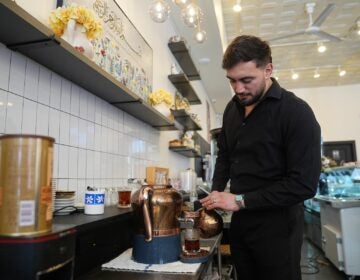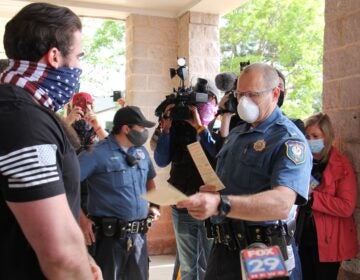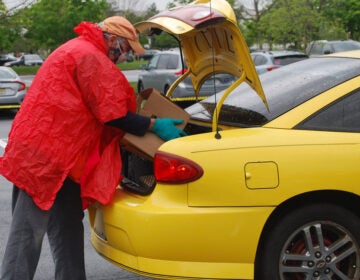As coronavirus hits Willingboro hard in South Jersey, residents revamp daily life
The predominantly African American suburb has had more cases than much of South Jersey.
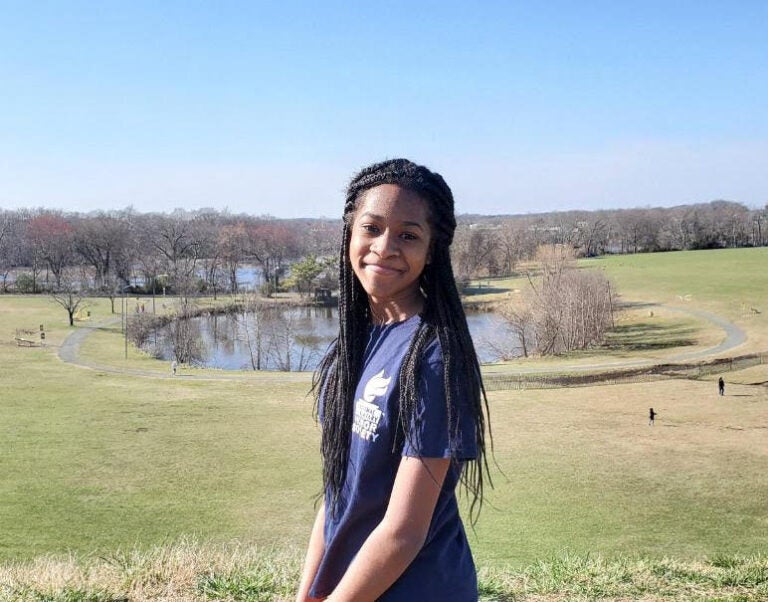
Alana Dean at Mill Creek Park In Willingboro, New Jersey. (Courtesy of Alana Dean)
Are you on the front lines of the coronavirus? Help us report on the pandemic.
While the coronavirus is having the biggest impact in North Jersey, Willingboro in Burlington County is dealing with more than its share. As of Monday, 231 residents had tested positive and nine had died.
Dr. Amy Dean, executive director of Willingboro community organization Faith In Action Ministries, said she felt the effects of coronavirus in a heavier way once people she knew died from COVID-19.
“It became real for me when two people that I knew passed away. A young man and older woman I know passed away,” Dean said. “One thing that also concerns me [about coronavirus] is how much we don’t know.”
Stay-at-home orders seem to have helped flatten the curve in this suburban, predominantly African American town. For resident Ronald Brown, flattening the curve has taken the form of making Facebook videos with tips for fighting COVID-19.
Brown, 44, is a co-owner of news site Black Line News and one of many residents still figuring out how to deal with COVID-19, the disease behind a pandemic that has claimed an increasingly high number of Black lives.
Willingboro is more than 70% African American and according to an analysis by the Philadelphia Inquirer, has the highest concentration of COVID-19 cases in South Jersey.
In an effort to help counter the spread of misinformation surrounding COVID-19 in Willingboro, Brown is relying on posting videos and content to the Black Willingboro Facebook page to reach people while adhering to social distancing mandates. He said some of that includes dispelling false information about the effectiveness of face masks.
Brown’s experience as a former hazardous waste worker has shaped his approach to finding solutions. He offers tips on how to purchase respirators that are in short supply.
“Find a licensed contractor in the community and buy them by the case,” he said. “They’re not selling respirators to civilians [in the same way.”
Brown said if people have extra respirators, they could be donated to hospitals and other essential businesses.
Adjusting to the new normal
Special education teacher Nikki Hunt, 46, has a “big family” and has found solace in activities that all of them can participate in together.
“We have a family of 11 plus a dog and even though they have TV and other things, my kids are enjoying board games and we all have been exercising together,” she said.
Student teacher Nikki Lloyd, 25, lauds the Willingboro School District’s response to the mandatory school closings by quickly moving to virtual classrooms and remote learning.
Hunt’s daughter Mykaila, an 11th grader, isn’t as positive.
“I really hate it. It’s hard to pay attention,” she said.
She struggles a bit because there are no traditional class periods. Leaving things open-ended makes it hard for her to focus on a subject before quickly switching to another.
Seventh grader Alana Dean agrees. As someone used to a boisterous classroom, surrounded by friends and classmates, she called the silence of learning at home “weird.”
Unlike many of his peers, seventh grader Calvary Sepenu first heard about coronavirus months ago at school on educational YouTube channel CNN10.
“When I first heard about coronavirus it was in my social studies class,” Sepenu said. “Thinking it was only in China, I didn’t think it would bother us.”
As the number of positive coronavirus cases in Willingboro grows, Dean is aware of the effects that information can have on the suburb’s residents and believes perseverance is key to making it through this pandemic.
“We get the numbers and we move on,” Dean said.
WHYY is your source for fact-based, in-depth journalism and information. As a nonprofit organization, we rely on financial support from readers like you. Please give today.


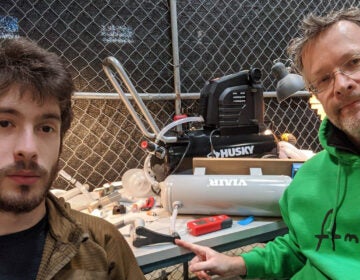

![CoronavirusPandemic_1024x512[1]](https://whyy.org/wp-content/uploads/2020/03/CoronavirusPandemic_1024x5121-300x150.jpg)
